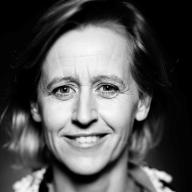 \
&
Contact us
\
&
Contact us
 \
&
Contact us
\
&
Contact us
The Energy Challenge is designed to support the transition to a reliable, sustainable and competitive energy system.
To make the transition to a competitive energy system, we need to overcome a number of challenges, such as increasingly scarce resources, growing energy needs and climate change.
The Energy Challenge is structured around seven specific objectives and research areas:

Ria.debreucker@vlaio.be
+32 2 553 13 77
Find the contact info on the site of WEWIS
The National Contact Points (NCPs) provide support, guidance, and practical information to potential applicants, helping them navigate funding opportunities and application processes.
The Programme Committee (PC) members represent their country in decision-making about the work programmes, evaluate implementation, and provide strategic input on priorities and calls.
Infosheets contain edited content on aspects related to this programme. They are reviewed at least yearly.
Related links are easy pointers towards external information. We curate the list, but are not liable for the destinations.
Documents contain additional information related to this programme, and are similar to related links.
The YoPA project, ‘a youth-centred preventive action approach towards co-created implementation of socially and physically activating environmental interventions’ obtained funding from Horizon Europe’s Health Cluster. The project addresses the multifaceted challenges of physical inactivity and health inequalities through a unique participatory approach. The project places teenagers between 12 and 18 years old in vulnerable situations at the forefront of the intervention process. The Institute of Tropical Medicine is a partner in the project and will conduct a Realist Evaluation to understand how youth co-creation contributes to improved adolescent health and well-being in four cities in Denmark, Netherlands, Nigeria and South Africa. By integrating its results and sharing its approach in an open access Toolbox, ITM aims to contribute to fostering sustainable, youth-led solutions for healthier urban environments.